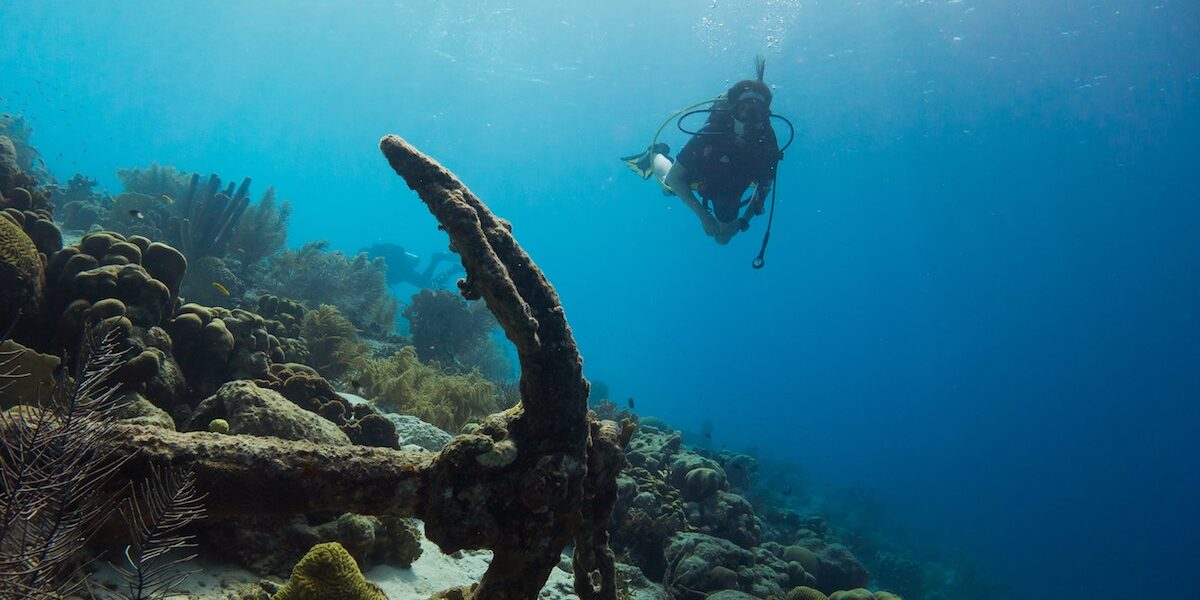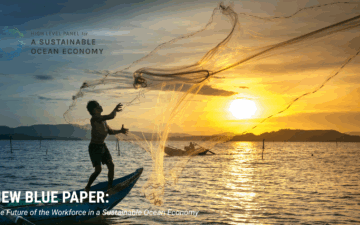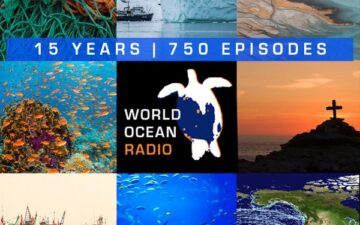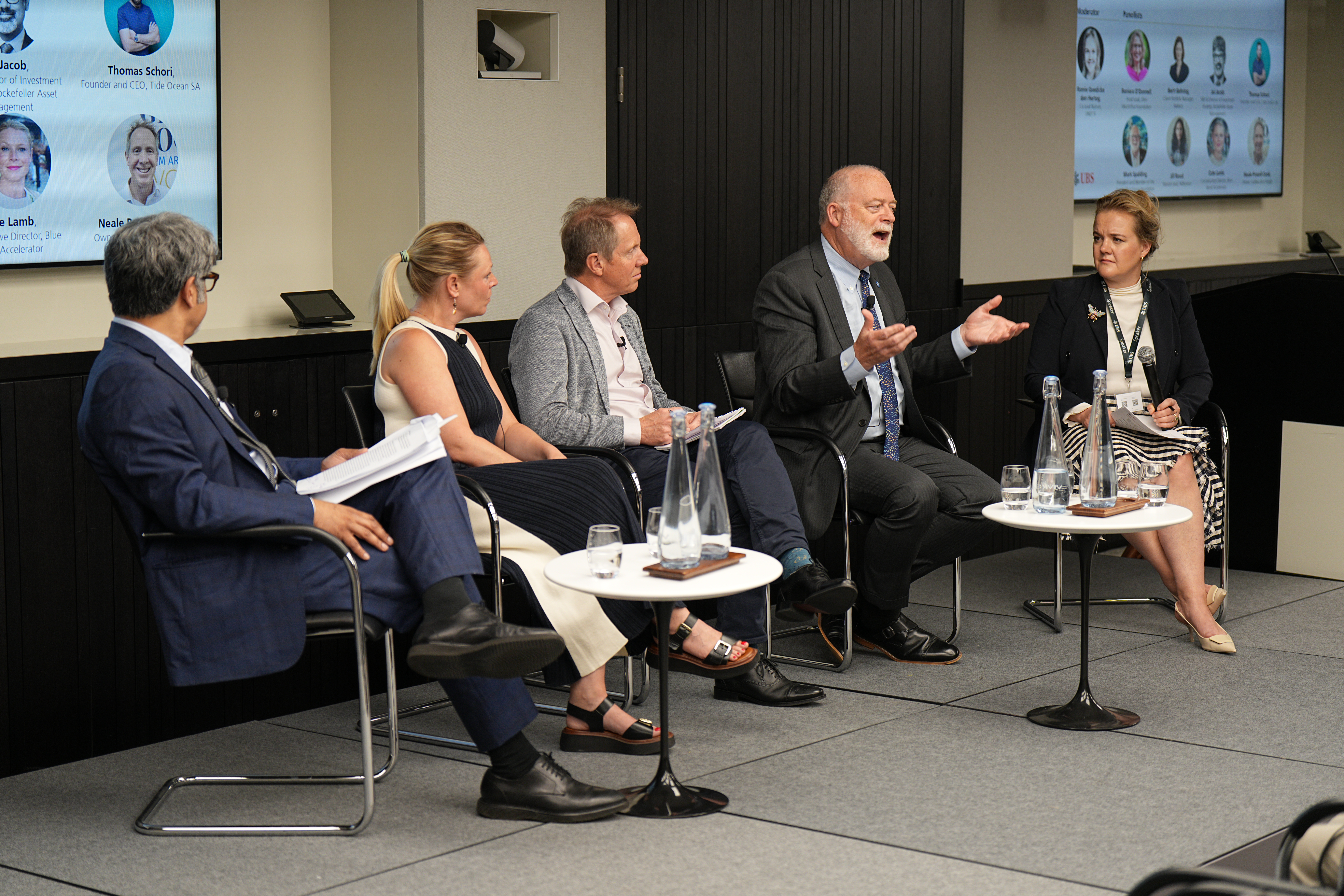by Jessie Neumann, TOF Marketing Intern
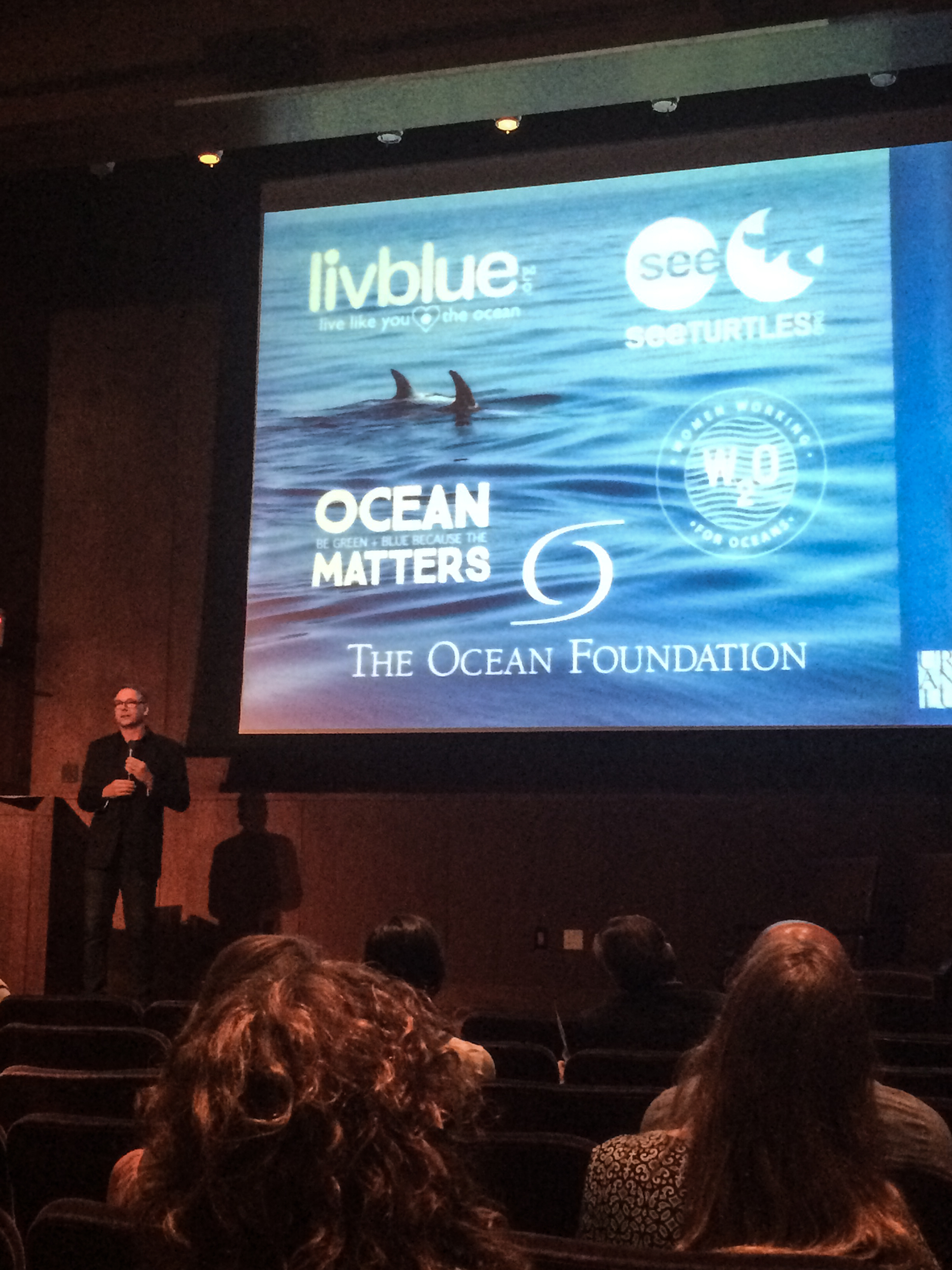
I had the distinct pleasure of attending the 5th annual Blue Mind Summit this past Monday, coordinated by Wallace J. Nichols, our TOF project manager of LivBlue Angels. The event featured a plethora of diverse speakers, from a veteran to a neuroscientist to even an athlete. Each speaker talked about his/her experience with water in a new and refreshing lens.
The mood was set from the beginning as we all received J’s signature blue marble, reminding us that we are all on a planet of water. We then had to exchange our marble and our most memorable water experience, with that of a stranger. As a result, the event started off with a positive buzz that carried on throughout the entire event. Danni Washington, founder of The Big Blue and You – artistic inspiration for ocean conservation, welcomed the audience and gave us three things to consider throughout the summit: we need to flip the existing story of the ocean to one with a positive message in which we share what we love about water, we need to inspire others in whatever we do, and we need be the invitation to the water.
The summit was divided into 4 different panels: The New Story of Water, Science of Solitude, Sleeping Deeper, and Submergence. Each panel featured two to three speakers from diverse spheres as well as a neuroscientist to be an anchor.
The New Story of Water – flip the story of the ocean to be about the huge positive impact we can have
Neuroscientist Layne Kalbfleisch started off trying to explain the connection between what water looks like, what it feels like and how we experience it. She was followed by Harvey Welch, president of the Carbondale Park Board. Harvey was a “man with a big plan” to establish a public pool in a southern Illinois town, a place where African Americans like himself used to be banned from all public pools. to round off the panel Stiv Wilson told us the “Story of Stuff.” He informed us on the vast amount of stuff in the ocean, from plastics to pollutants. He, too, wants to change the story of the ocean to be about us, because until we really understand our dependence on water, we will not do all that we can to protect it. He encouraged us to act, and to particularly move away from the idea of individual ocean heroes and more towards collective action. He has seen that many people feel no need to act if a hero claims to have all the willpower to make change.
Science of Solitude – the power of water to help us to achieve solitude
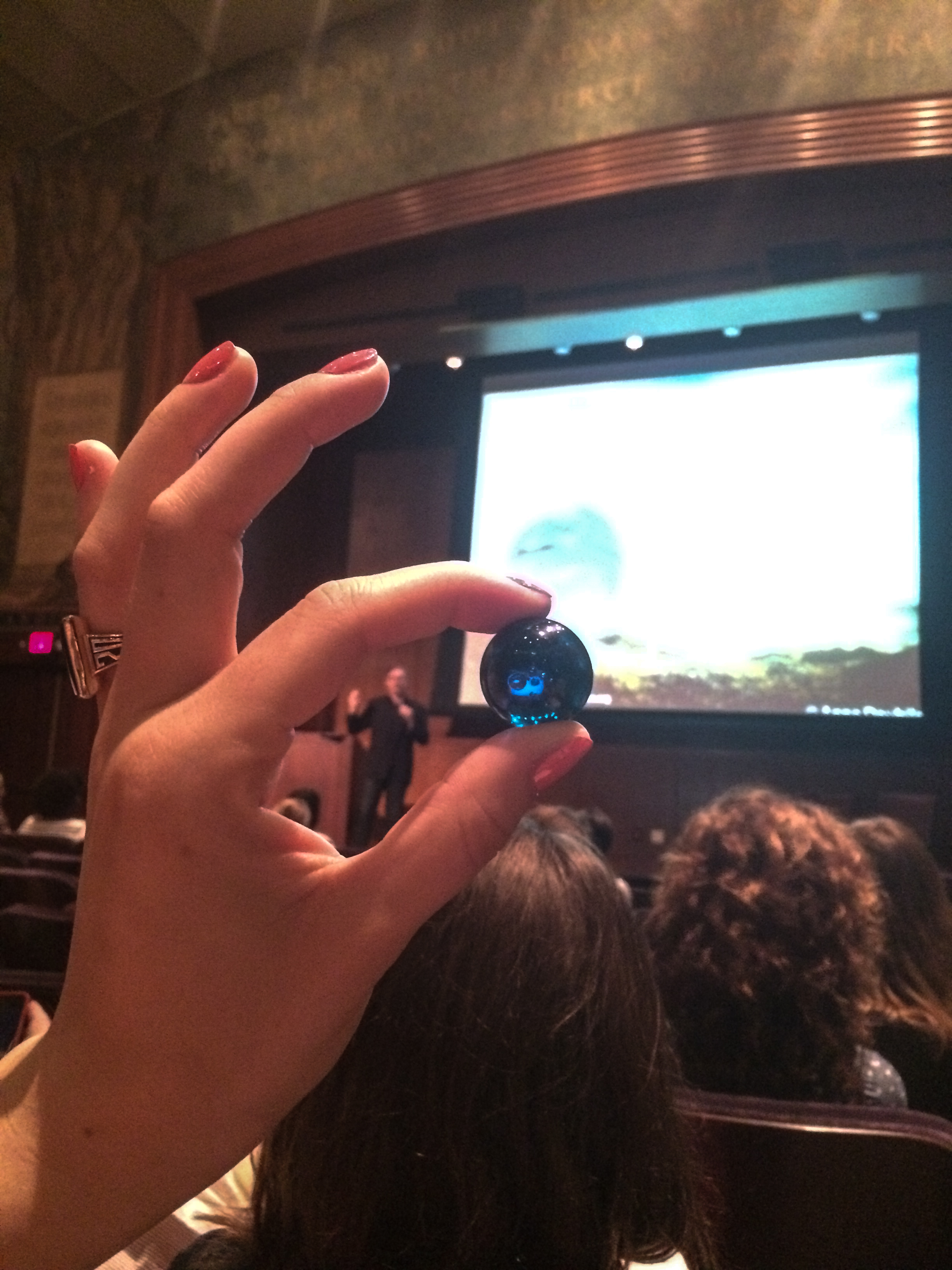
Tim Wilson, a professor at the University of Virginia has done years of research on the human mind and its ability or inability to “just think.” Most people have a hard time just thinking, and Tim proposed to idea that a waterscape may be the key to humans taking a moment to just think. He hypothesizes that water allows people to have a better flow of thoughts. Professional adventurer and MC of the event, Matt McFayden, talked about his extreme journey to the both ends of the Earth: Antarctica and the North Pole. He was surprised to find us that despite the harsh environments and near death experiences he continued to find solitude and peace on the water. This panel concluded with, Jamie Reaser, a wilderness guide with a Ph.D. from Stanford who challenged us to channel our inner wildness. She has found time and time again that it is easier to find solitude in the natural world and left us with the question: Are we coded to be near the water for survival?
After lunch and a brief yoga session we were introduced to the Blue Mind Alumni, individuals who read J’s book, Blue Mind, and took action in their communities to spread the word about water with a positive blue midset.
Blue Mind Alumni – Blue Mind in action
During this panel Bruckner Chase, an athlete and founder of Blue Journey, stressed the need for action. His life work is to make water accessible to people of all ages and abilities. He strives to find ways to get people in the water and has found that once most people start in the water they cannot leave. Chase values the personal experience people can have with the water and thinks it makes way for a deeper connection and sense of protection for the ocean. Lizzi Larbalestier, who came all the way from England, told us her story from beginning to where she hopes it will go in the future. She read J’s book and provided the audience with an example an average individual who can put this message to work. She emphasized through her personal experience that one does not need to be an academic to have a relationship with water and encourage others to as well. Finally, Marcus Eriksen spoke about his trips around the world to study the 5 gyres, the 5 garbage patches, in the ocean and the plastic smog we now can scientifically map.
Sleeping Deeper – the medicinal and psychological effects of water
Former Marine Bobby Lane took us on his rough journey through combat in Iraq, extreme and prolonged PTSD, suicidal thoughts, and eventually how water saved him. After surfing his first wave Bobby felt an overwhelming sense of peace and attained his best sleep in years. He was followed by Justin Feinstein, a neuroscientist who explained to us the science of floating and its medical and psychological healing powers. When floating, the brain is relieved of strong gravitational pull and many of the senses tend to lessen or even turn off. He sees floating as sort of a reset button. Feinstein wants to continue his research to explore if floating could help clinical patients, including those with anxiety and PTSD.

Submergence – the effects of deep water
to start this panel, Bruce Becker, aquatic psychologist, asked us why after a long hard day we see running a bath and getting in the water as a reliable method of relaxation. He works to understand that moment when we step in the tub and our brain takes a deep breath. He taught us that water has important circulation effects, and left us with a catchy phrase that “a healthy brain is a wet brain.” Next, James Nestor, author of the Deep, showed us the amphibious capabilities that humans can have when it comes to free diving at extreme depths. We humans have magical amphibious abilities that many of us do not even attempt to access. Free diving is one of the most effective ways to study marine mammals closer up than anyone. To end the panel session, Anne Doubilet, NatGeo photographer, shared her glorious photos of all parts of the ocean from ice to coral. Her creative presentation compared the chaotic world of coral to that of her home in Manhattan. She brought the urban to Blue Urbanism, as she constantly travels back and forth between urban and wild. She urges us to act and to act quickly because already in her lifetime she has seen a massive degredation of coral.
In its entirety the event was spectacular, as it provided a very unique lens with which to look at the contemporary problems we have with the ocean. The day was full of unique stories and thought provoking questions. It gave us concrete steps to take, and encouraged us that even small actions can create a big ripple. J encourages everyone to have their own psychological relationship with water and share it. We were all brought together by J and the message of his book. Everyone shared their personal experience with water, their own story. I encourage you to share yours.
